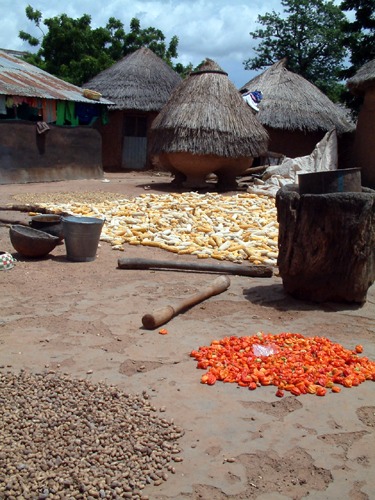
"In view of the current food and financial crises, high priority should now be placed on reducing postharvest losses." This was the view expressed by the Special Representative of the UN Secretary General for Food Security and Nutrition, David Nabarro, at a meeting on this subject held last week in Rome.
NRI has recently completed detailed reports for both the African Development Bank and the World Bank on the prospects and approaches for reducing postharvest losses in Sub-Saharan Africa. The way forward from these reports was the subject of the World Bank/FAO Postharvest Losses in Grain Supply Chains Meeting held in Rome on the 18/19 March. The meeting was attended by a wide range of organisations and gave NRI's Rick Hodges and Ben Bennett the chance to describe the opportunities and challenges of postharvest loss reduction and showcase the African Postharvest Losses Information System (APHLIS), an initiative of the European Commission's Joint Research Centre that was developed by NRI in association with information specialists ISICAD, based in Bonn.
Reducing food losses after harvest offers a means of increasing food supply without any further increase in the use of vital resources such as land, labour, water and agricultural inputs. But postharvest loss reduction goes further than this, it also addresses losses in opportunity. Currently, many producers cannot access markets or are currently confined to lower value market chains through lack of product quality, market information or business skills. Reduction in losses will both reduce the amount of food lost but also improve the livelihoods of producers since they will be better able to access markets and operate in higher value and more efficient market chains. More lucrative markets offer the incentives to producers to adopt the improved approaches and technologies that will make loss reduction a reality. This is also good news for the consumer because food supplies will be more stable and of better quality.
World Bank and African Development Bank are both poised to support loss reduction programmes. African Development Bank has already outlined a programme supported by grants and loans to the tune of US$1.7 billion across a wide range of agricultural products while the World Bank plans to focus on African cereal staples, and co-ordinate its programme thorough a new community of practice.

